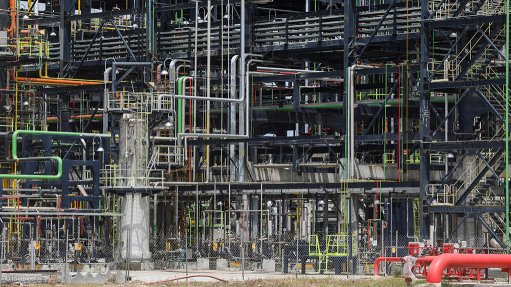Renewables programme has delivered in relatively short timeframe
South Africa’s Renewable Energy Independent Power Producer Procurement Programme (REIPPPP) has been a notable success since it was launched in August 2011.
Through the programme, the Department of Energy (DoE) mandated the procurement of up to 3 625 MW of power from independent power producers (IPPs) of various renewable-energy technologies, including wind, solar photovoltaic, concentrated solar power, biogas, biomass, small hydro and landfill gas.
An additional 3 100 MW has subsequently been made available for procurement under the REIPPPP and, in October last year, it was announced that a further 1 500 MW was in the final stages of approval.
“In just over three years, four rounds of competitive bidding have been successfully completed. Numerous projects across different renewables technologies have not only raised financing and completed construction and grid connection but have also achieved commercial operations,” law firm Macfarlanes partner and energy lawyer Scott Brodsky tells Engineering News.
Macfarlanes is sponsoring the Africa Energy IPP & PPA Conference and Workshop that will take place in Sandton, Johannesburg, on February 19.
Brodsky notes that South Africa’s IPP programme has also resulted in producing the first substantial renewable output in a country dominated as well as severely constrained by its dependence on coal-fired power.
He says the introduction of renewable energy into the grid is “putting the country on the renewables map”, as nations worldwide are implementing alternative, sustainable, cutting-edge energy solutions.
“South Africa’s IPP programme has also been instrumental in driving local economic development, skills transfer and job creation.”
Brodsky explains that while the programme has encountered challenges, such as grid connection and the absence of a one-size-fits-all solution for Africa, the programme is an example of how real results can be achieved in a short time.
Energy Crisis
Brodsky points out that the current power crisis in Africa, especially South Africa, has stimulated huge investment opportunities on the continent.
He says many African countries regard independent power projects as a way of addressing the acute shortage of power, keeping the lights on and ensuring that industry is productive.
However, Brodsky notes that numerous components are needed to resolve South Africa’s severe power shortage.
“One key requirement is getting substantially more electricity capacity onto the grid and generating power. It is estimated that South Africa needs 50 000 MW of new-generation capacity over the next 20 years, compared with about
40 000 MW currently available,” he explains.
The first round of renewables projects under the REIPPPP, Brodsky points out, has reached commercial operation and more projects will do so over the coming years. Based on the success of the REIPPPP, the DoE has now launched the much-anticipated coal baseload IPP programme, with first bids due on June 8.
“This first round is targeting projects capable of reaching commercial operation before the end of 2021.”
He adds that there is no doubt that IPPs, both conventional fuel-based and renewables, will play a key role in helping to resolve the current crisis.
Another area where further strides can be made is energy efficiency – this will help reduce demand on the system.
Brodsky also notes that nuclear may have a role to play.
“Nuclear energy can play an important long-term role in the country’s energy mix. For example, 75% of France’s power is derived from nuclear energy, although this is expected to decrease in the coming decades. By contrast, power generation in South Africa continues to be dominated by coal. The Integrated Resources Plan (IRP) does, however, call for 9 600 MW of new nuclear capacity to be added to the system,” he says.
Brodsky emphasises, however, that nuclear power is not without its challenges, such as the high upfront cost and the time it takes to construct and bring new plants into operation, adding that it is, therefore, not a short-term solution to the current crisis.
Some commentators have suggested that the IRP be revised to allow for more megawatts to be added using options such as renewables, which can be commissioned and operational much more quickly.
Meanwhile, Brodsky states that South Africa, with industries such as mining, smelting and oil and gas, has an economy that is energy intensive.
“A lack of power constrains output and growth, and increases costs – the closing of certain mines for a week in January 2008 was devastating, with the current and expected load shedding around the country a major concern for all businesses, big and small. This emphasises the important role that IPPs will play in alleviating the shortage,” he concludes.
Comments
Press Office
Announcements
What's On
Subscribe to improve your user experience...
Option 1 (equivalent of R125 a month):
Receive a weekly copy of Creamer Media's Engineering News & Mining Weekly magazine
(print copy for those in South Africa and e-magazine for those outside of South Africa)
Receive daily email newsletters
Access to full search results
Access archive of magazine back copies
Access to Projects in Progress
Access to ONE Research Report of your choice in PDF format
Option 2 (equivalent of R375 a month):
All benefits from Option 1
PLUS
Access to Creamer Media's Research Channel Africa for ALL Research Reports, in PDF format, on various industrial and mining sectors
including Electricity; Water; Energy Transition; Hydrogen; Roads, Rail and Ports; Coal; Gold; Platinum; Battery Metals; etc.
Already a subscriber?
Forgotten your password?
Receive weekly copy of Creamer Media's Engineering News & Mining Weekly magazine (print copy for those in South Africa and e-magazine for those outside of South Africa)
➕
Recieve daily email newsletters
➕
Access to full search results
➕
Access archive of magazine back copies
➕
Access to Projects in Progress
➕
Access to ONE Research Report of your choice in PDF format
RESEARCH CHANNEL AFRICA
R4500 (equivalent of R375 a month)
SUBSCRIBEAll benefits from Option 1
➕
Access to Creamer Media's Research Channel Africa for ALL Research Reports on various industrial and mining sectors, in PDF format, including on:
Electricity
➕
Water
➕
Energy Transition
➕
Hydrogen
➕
Roads, Rail and Ports
➕
Coal
➕
Gold
➕
Platinum
➕
Battery Metals
➕
etc.
Receive all benefits from Option 1 or Option 2 delivered to numerous people at your company
➕
Multiple User names and Passwords for simultaneous log-ins
➕
Intranet integration access to all in your organisation


















